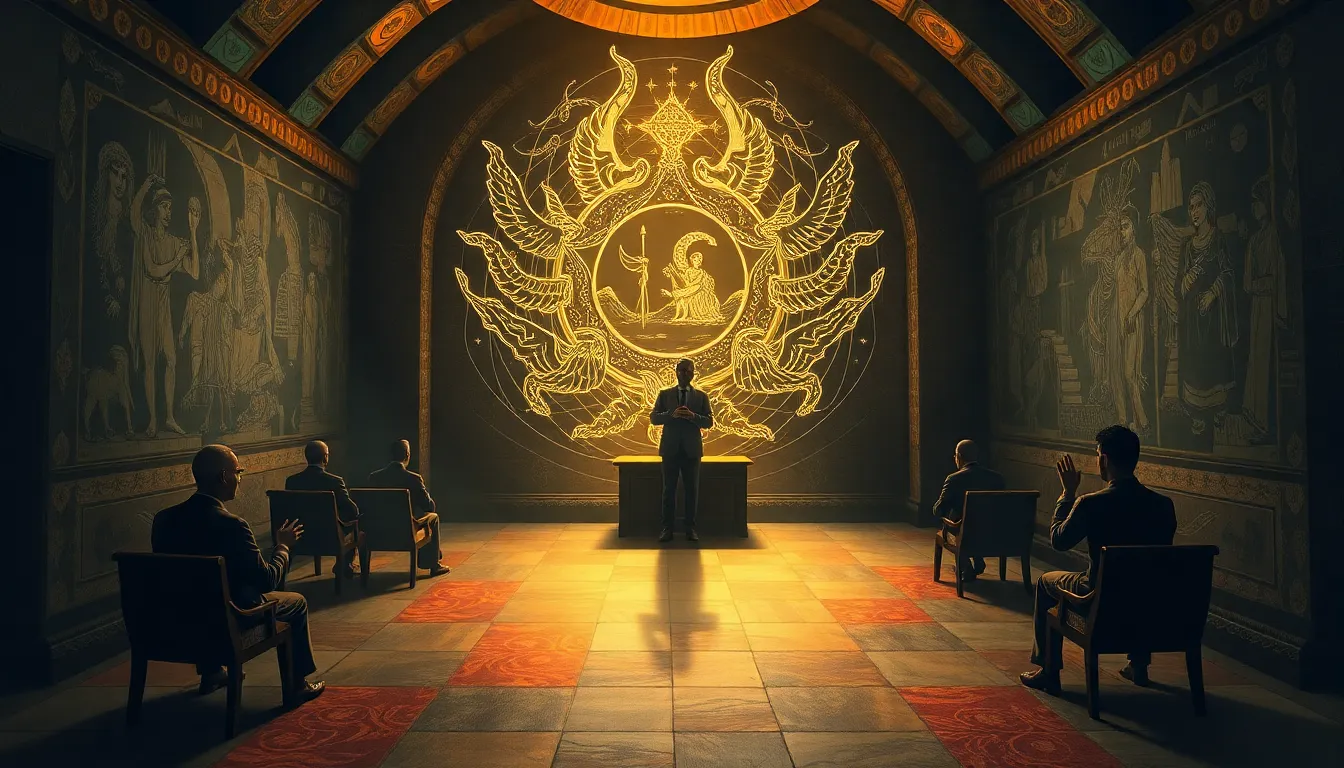The Floods of the Mind: Psychological Interpretations of Flood Myths
Introduction: The Allure of Flood Myths
Flood myths are a fascinating aspect of global folklore, appearing in diverse cultures from the ancient civilizations of Mesopotamia to modern interpretations in contemporary literature. These narratives often share a common thread: a great deluge that wipes out humanity, with a select few surviving to begin anew. This universal theme captivates the imagination and serves a deeper psychological significance.
The allure of flood myths lies not only in their dramatic storytelling but also in their ability to reflect human fears, hopes, and the desire for renewal. By exploring the psychological interpretations of these myths, we can uncover layers of meaning that resonate with our collective subconscious.
Historical Context of Flood Myths
Throughout history, numerous civilizations have crafted their own flood narratives, each shaped by their unique environmental and cultural contexts. Some notable examples include:
- Mesopotamia: The Epic of Gilgamesh features a flood story where Utnapishtim builds a boat to survive a divine flood sent by the gods.
- Greece: In Greek mythology, Deucalion and Pyrrha survive a flood sent by Zeus to cleanse the earth.
- India: The Matsya Purana describes how the god Vishnu saves humanity from a great flood by guiding a boat.
These myths often share common themes such as divine retribution, survival, and the rebirth of civilization. The role of environmental factors—such as catastrophic flooding in river valleys—has undoubtedly influenced the creation and evolution of these stories throughout history.
Psychological Archetypes in Flood Myths
Flood myths can be analyzed through the lens of Jungian psychology, which identifies archetypes—universal symbols or characters that reside in the collective unconscious. Key archetypes present in flood myths include:
- The Hero: Often the survivor or the one who navigates the chaos, representing resilience and hope.
- The Wise Old Man: A figure who provides guidance and wisdom, often seen in the context of preparing for the flood.
The flood itself often symbolizes chaos, representing the breakdown of order and the potential for renewal. This duality highlights the psychological struggle between destruction and the possibility of new beginnings.
The Flood as a Metaphor for Psychological Transformation
In psychology, transformation and catharsis are vital processes for healing and growth. Flood myths serve as powerful metaphors for personal and collective upheaval, illustrating how individuals and societies can emerge from crisis transformed. These narratives depict:
- Personal Upheaval: Individuals facing internal struggles, akin to a flood washing away their old selves.
- Collective Crisis: Societies confronting moral or ethical dilemmas, leading to a collective rebirth.
Case studies of various flood myths demonstrate how they can act as pathways to self-discovery, as characters confront their vulnerabilities and ultimately find resilience.
Cultural Reflections: Societal Values and Fears
Flood myths often reflect the societal values and fears of the cultures from which they originate. These narratives examine themes of morality, justice, and divine retribution:
- Morality: Floods often serve as a punishment for humanity’s transgressions, emphasizing ethical behavior.
- Justice: The narrative may portray the idea that divine forces intervene to restore balance.
- Control: Floods evoke anxiety about humanity’s ability to control nature and the consequences of environmental neglect.
Through these themes, flood myths engage with cultural anxieties and highlight the human relationship with the natural world.
The Role of Trauma in Flood Narratives
Understanding trauma through psychological theory reveals how floods can symbolize both personal and communal trauma. Flood narratives often encapsulate:
- Loss: The destruction caused by floods can mirror personal losses experienced by individuals.
- Resilience: Characters often demonstrate healing and strength in the aftermath of disaster.
These elements illustrate the journey from trauma to recovery, emphasizing the potential for growth and healing within the chaos.
Flood Myths in Modern Psychology
Ancient flood myths continue to hold relevance in contemporary psychological practice. Therapists often integrate these narratives into healing processes, using them as metaphors for:
- Existential Crisis: Individuals grappling with identity and purpose can find parallels in flood myths.
- Transformation: Myths can illustrate the journey of overcoming adversity and emerging renewed.
By exploring these narratives, individuals can gain insight into their struggles and foster a sense of connection to the collective human experience.
Comparative Analysis: Global Perspectives on Flood Myths
Flood myths from different cultures reveal both similarities and differences in psychological themes and interpretations. For example:
- Noah’s Ark: Highlights themes of obedience and divine mercy, emphasizing hope and salvation.
- The Epic of Gilgamesh: Focuses on the inevitability of death and the quest for immortality.
- Hindu Myths: Often frame floods as divine interventions that restore dharma (cosmic order).
This comparative analysis provides insights into how different cultures interpret the psychological challenges posed by floods, enriching our understanding of human experience.
Artistic Representations of Flood Myths
The influence of flood myths extends beyond literature into visual arts and film. Artists have long drawn inspiration from these narratives, exploring their psychological depth. Artistic representations often:
- Visual Arts: Paintings and sculptures depict scenes of destruction and rebirth, capturing the emotional weight of floods.
- Literature: Authors use flood myths to convey themes of loss, resilience, and moral dilemmas.
- Film: Movies often dramatize flood narratives, providing a visceral experience of the chaos and renewal.
These artistic expressions serve as powerful mediums for exploring the profound themes embedded in flood myths.
Conclusion: The Enduring Legacy of Flood Myths
The enduring legacy of flood myths is a testament to their psychological significance and cultural relevance. These narratives resonate across time and space, reflecting humanity’s deepest fears, hopes, and aspirations. As we explore the psychological interpretations of flood myths, we uncover not only their richness as stories but also their profound impact on our understanding of transformation, trauma, and the human experience. In a world where chaos often disrupts our lives, flood myths remind us of the possibility of renewal and the resilience of the human spirit.




